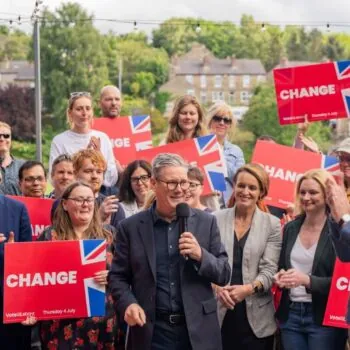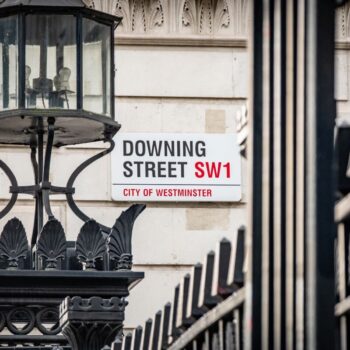With infrastructure at the heart of yesterday’s spending review, Government's move to sell-off the country’s only infrastructure investment bank become curiouser and curiouser.
The Green Investment Bank (GIB) has been a huge success story. For every £1 of public investment, the GIB has mobilised a further £3 of private investment. As constituted, it had and continues to have wide cross-party support, support from civil society and most importantly support from the private sector.
The Environmental Audit Committee’s Inquiry into the future of the GIB continues today with Minister for Small Business, Industry and Enterprise Anna Soubry giving her evidence to MPs.
So what are the key questions that Anna Soubry must answer? Here are 5.
1. What impact will GIB privatisation have on costs to consumers and taxpayers?
It is vital that any plans for the future of the Green Investment Bank (GIB) be tested against the purposes for which it was set up. Despite the Government’s recent repeated framing, the purpose of the GIB is not to ‘prove that green is profitable’. That has long been proven.
The GIB was set up to “address specific market failures and investment barriers in a way that will achieve emission reductions at least cost to taxpayers and consumers.”[1] The Government has not provided evidence of the impact of GIB privatisation on the costs to energy consumers and taxpayers.
Anna Soubry, what is the impact of GIB privatisation on cost to the consumer and taxpayer of delivering the required level of investment in the UK Green Economy?
2. How will sale at this time achieve best value for money for the taxpayer?
The Government has stated that it will only proceed with sale of the Green Investment Bank (GIB) when it is able to achieve best value for money for the taxpayer.[2] The evidence suggests that sale of the GIB at this time will not achieve best value for money: recent changes in policy have seen investor confidence in the UK green economy dip to an all time low; the Energy and Climate Change Secretary’s ‘energy policy reset’ speech has confirmed that policy uncertainty in the sector will continue as key decisions are delayed into next year.
A rushed privatisation of either a minority or a majority share of the GIB in the current climate is highly unlikely to deliver best value for money for the taxpayer.
Anna Soubry, given the dip in investor confidence and continuing policy uncertainty, how will a sale at this time achieve best value for money for the taxpayer and energy consumer?
3. What does the Government mean by privatisation?
The Government has not clarified what form GIB privatisation could or will take and why. Many questions remain outstanding. Is the Government selling the team? Is it selling the assets? Will GIB be sold as a bank? Will it be sold as funds? What evidence has or will inform these decisions? What options have been considered, dismissed and why? The answers to these questions will have a substantial bearing on whether a future GIB can fulfil its original aims and purposes.
I know that’s more than one question…but…
Anna Soubry, what does the Government mean by GIB ‘privatisation’, and how would different models of privatisation contribute to, or negate, the GIB’s aims and purposes?
4. Where is the evidence?
As constituted, the GIB had and continues to have wide cross-party support, support from civil society and most importantly support from the private sector.
This broad based consensus came following three years and two official rounds of rigorous market testing and evidence gathering to establish whether a public GIB was needed, and to collect evidence to inform its aims, design and operating model.
Conversely, plans to privatise the GIB did not appear in the Conservative party manifesto nor have they been consulted on.
The Government must provide evidence to support assertions that: (a) a publicly owned GIB is no longer needed; (b) a privatised GIB will continue to fulfil its purpose of addressing market failures in the green economy and thereby deliver the scale of investment required; (c) GIB will not crowd out private investors; and (d) removal of all GIB legislative provisions are necessary to achieve balance sheet reclassification.
Anna Soubry, where is your evidence?
5. Have you pursued alternative ways to recapitalise the GIB?
The GIB does need access to a larger capital base in order to increase its impact. While the Government has framed privatisation as the only route to achieving this, there exist a whole range of other options which must be effectively explored.
For example the GIB could proactively focus on accessing the European Fund for Strategic Investment (EFSI) for British Infrastructure projects while exploring different models of recapitalisation that are a good fit with continuing to deliver on the Bank’s original aim and purpose. These could include investment by UK pension funds and green ISAs, EIB investment amongst others. In this way there could be a phased approach to recapitalisation.
Anna Soubry, are you effectively exploring other options for recapitalising the GIB?
For more detail, please see our written evidence to the Environmental Audit Committee.
[1] Green Investment Bank Commission Report, 2010, pxiii [2] ‘Future of the Green Investment Bank PLC’ Policy Statement, Nov 2015, p17

